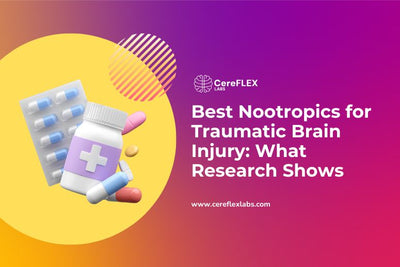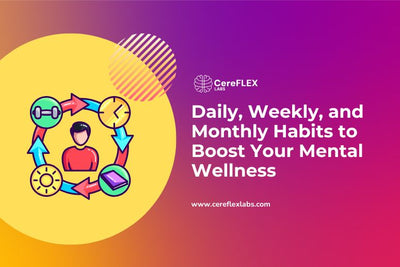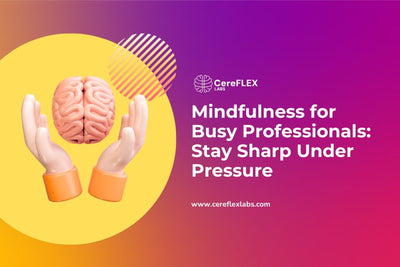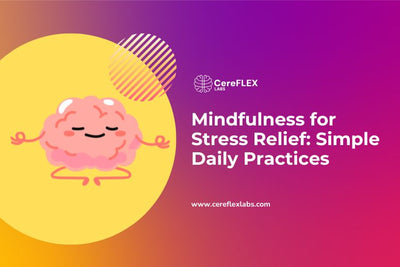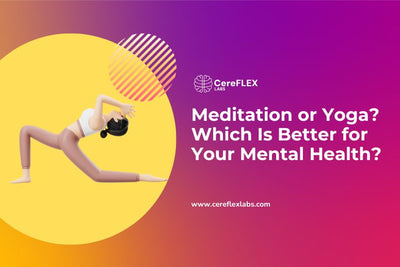Have you noticed how some days your mind is sharp and focused, while other days feel like you’re stuck in a mental fog?
Understanding your brain’s unique strengths and areas for improvement can feel like unlocking a personal blueprint. This is where brain health assessments come into play—a simple yet powerful way to decode your cognitive profile and take charge of your mental wellness.
By understanding what makes your brain tick, you can enhance productivity, tackle cognitive challenges, and boost your overall well-being.
Let’s explore how assessing your cognitive strengths can open the door to a brighter, sharper you.
Here is the Quick Answer |
|
Brain health assessments give you a clear view of your memory, focus, and cognitive strengths—like a fitness checkup for your mind. Whether through professional evaluations or online tools, they help identify areas for growth and improvement. Use the results to build better habits, boost mental performance, and stay sharp for the long term. Regular assessments = proactive brain care. |
What is a brain health assessment?
Think of a brain health assessment as a fitness test for your mind. It’s like having a personal trainer, but for your brain—evaluating skills like memory, focus, and problem-solving to give you a clear picture of your mental strengths and areas that might need a little extra work.
How do you assess cognitive function?
Here’s what it typically involves:
Professional Evaluations
These are conducted by neuropsychologists or cognitive therapists and are ideal for individuals seeking an in-depth understanding of their brain health.
A professional evaluation might include interviews and tailored tasks to pinpoint specific cognitive deficits after a traumatic brain injury.
Self-Assessments
Simple tools like apps or questionnaires serve those looking for a quick way to reflect on their cognitive state. They promote ongoing self-awareness, helping you monitor focus during a busy week.
Online Tests
Platforms such as Cogniciti are perfect for initial exploration. These tests provide preliminary insights that highlight areas to improve. They act as a practical starting point, perfect for exploring ways to enhance study habits or work performance.
Whether through formal tests or digital tools, these approaches provide essential insights for Cognitive Function Enhancement, empowering individuals to focus on what truly matters.
The Building Blocks of Cognitive Function
A brain health assessment dives into specific areas of cognitive performance. Here’s what gets tested:

Memory
Ever been handed a grocery list and then had to recite it after a few minutes? Memory tests work similarly. These tasks might include recalling a sequence of numbers, retelling a short story, or even memorizing and reproducing patterns. They simulate real-world demands, like remembering directions or a colleague’s instructions.
Attention and Focus
Imagine trying to spot a specific letter in a rapidly changing grid of characters while distractions flash around you. These tests mimic everyday situations, like focusing on a single conversation at a noisy party or picking out the right product on a crowded shelf.
Executive Function
Think of this as the ultimate planning challenge. Tasks might include organizing a schedule with overlapping appointments or mapping out the most efficient route to several destinations. These exercises test problem-solving and decision-making—the kind you use when juggling work deadlines and family commitments.
Language and Communication
Whether you're breaking down a complex idea for a word-definition game or improvising a story from random prompts, these tasks assess how fluently and clearly you can organize your thoughts and turn them into meaningful communication.
Visual-Spatial Abilities
Have you ever assembled furniture from a set of instructions or navigated a new city using only a map? These are real-world examples of visual-spatial skills. Tests might involve replicating geometric patterns or navigating a maze, reflecting how we interpret and interact with the space around us.
Each component is designed to uncover practical, real-world insights into how your brain works, helping you understand your unique cognitive profile and areas for improvement.
Interpreting Your Results: What Do They Mean?
Once you’ve taken a cognitive assessment, the next step is understanding the results. Here’s a quick breakdown:
-
Scores: These provide benchmarks for your memory, attention, and other areas.
-
Strengths: Celebrate what your brain excels at—it’s your cognitive superpower!
- Opportunities for Growth: Identify areas where additional support, like brain training or lifestyle changes, can make a difference.
Taking Action: Steps to Boost Cognitive Health
After pinpointing your strengths and weaknesses, it’s time to act. Here are actionable tips:
-
Cognitive Exercises:
Engage with brain-training apps like Lumosity or Peak that offer tailored exercises for memory, attention, and problem-solving.
Try dual n-back games to enhance working memory or Stroop tasks for improving focus and mental agility.
Activities like chess or crossword puzzles stimulate strategic thinking and verbal fluency.

- Healthy Habits:
Nutrition: Incorporate brain-boosting foods like fatty fish (rich in omega-3s), berries (packed with antioxidants), and leafy greens (loaded with vitamins like folate and vitamin K). Snack on walnuts and seeds for an easy dose of healthy fats and magnesium.
Physical Activity: Opt for aerobic exercises like jogging or cycling, which improve blood flow to the brain, or practice yoga to reduce stress and improve cognitive flexibility.
Sleep: Maintain a consistent sleep schedule, aiming for 7-9 hours of quality rest each night to enhance memory consolidation and cognitive clarity. Avoid screen time before bed to support natural melatonin production.
Embracing these strategies, supported by insights from Mental Fitness Strategies, ensures holistic cognitive health that adapts to your evolving needs. By taking small steps consistently, you can unlock meaningful progress and build the confidence to tackle any mental challenge with ease.
Why Knowing Your Cognitive Strengths Matters
Understanding your cognitive profile isn’t just fascinating—it’s empowering. Here’s how it can transform your life:
-
Personalized Growth: By knowing your strengths, you can tailor strategies to build on them while addressing areas needing improvement.
-
Early Detection: Spotting cognitive decline early can be life-changing. Research from the Alzheimer’s Association shows that early diagnosis can improve treatment outcomes and planning.
-
Enhanced Productivity: Leveraging strengths like focus or creativity can lead to greater efficiency at work or in daily life.
- Improved Confidence: Knowing you have tools to manage cognitive challenges builds mental resilience.
With regular assessments, you’re not just reacting to changes; you’re proactively taking control of your brain health.
Regular check-ins can reveal patterns over time, help fine-tune strategies for maintaining optimal cognitive function, and empower you to lead a more fulfilled life.
The Role of Regular Cognitive Assessments
Think of regular assessments as preventive checkups for your brain. They provide:
-
Early Warnings: Detect changes in cognitive function before they escalate. Routine assessments might reveal subtle declines in memory, allowing individuals to address them early with brain training and lifestyle adjustments.
-
Long-Term Tracking: Over time, regular tracking can uncover patterns that one-time assessments might miss.
- Ongoing Motivation: Celebrate small victories as you track progress.
Researchers from Aalto University and the University of Oulu have found that regular cognitive tracking over months helped participants identify and reinforce effective brain-boosting habits. This practice led to sustained improvement in mental performance.
Integrating assessments into your routine ensures your brain health remains a priority.
How CereFLEX Labs Can Help
At CereFLEX Labs, we’re dedicated to supporting cognitive health with science-backed solutions. Here’s how we stand out:
Innovative Products
Our supplements are formulated with scientifically validated ingredients like phosphatidylserine for memory support, Bacopa Monnieri for cognitive enhancement, and omega-3 fatty acids for overall brain health.
Each ingredient is chosen for its proven ability to target key areas of brain performance, ensuring a holistic approach to cognitive wellness.
Tailored Solutions
Whether you’re recovering from an injury or optimizing daily mental stamina, our products meet diverse needs.
Empowering Communities
Through research, resources, and outreach, we’re creating a community passionate about cognitive wellness. User testimonials regularly highlight transformative changes, from enhanced mental clarity to improved productivity, showcasing the real-world impact of our products.
Additionally, our commitment to transparency ensures that every product is rigorously tested and supported by data, building trust with our users.
Learn how incorporating science-backed strategies and supplements can support your journey toward improved cognitive health.
Conclusion: Your Brain’s Potential, Unlocked
Understanding your cognitive profile is more than just a health check—it’s a way to empower yourself. With insights from brain health assessments and support from CereFLEX Labs, you can confidently enhance your mental wellness.
Start your journey today and embrace the clarity and confidence that come with knowing your cognitive strengths.
FAQs
1. What is a brain health assessment?
It’s a tool to evaluate your cognitive functions, helping you understand strengths and areas for improvement.
2. How do I know if I need one?
If you’re noticing memory lapses, struggling with focus, or simply curious about your cognitive health, an assessment is a great start.
3. Are online tests accurate?
They’re reliable for basic insights but should be paired with professional evaluations for a complete picture.
4. How can I improve cognitive function after assessment?
Focus on brain-healthy habits like exercise, proper nutrition, and engaging cognitive exercises. Supplements can also support brain health.

